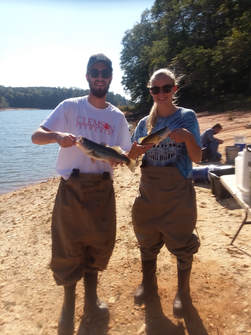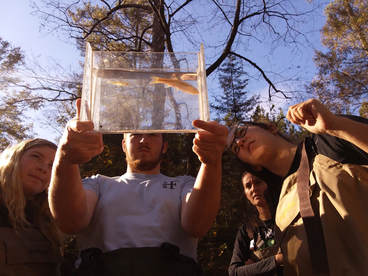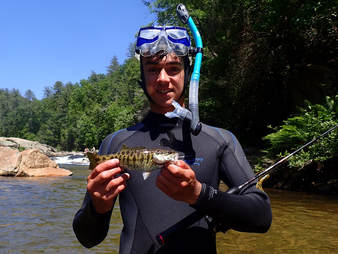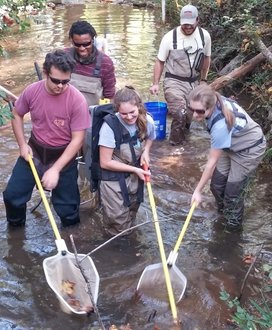Fisheries Techniques (WFB 4610)
|
Ichthyology (WFB 4770)
|
Creative Inquiry: Native Black Bass Conservation (FNR 4700-040)
|
Creative Inquiry: Fish Biodiversity Challenge (FNR 4700-031)
|
Analysis and Communication in Ecology (FNR 8610-06)
offered in spring of even-numbered years
The goals of this course are to help graduate students develop skills in:
(1) analyzing ecological data in R software, and
(2) effectively communicating science in both technical and non-technical media.
Analytical topics include:
Students develop communication skills through:
(1) analyzing ecological data in R software, and
(2) effectively communicating science in both technical and non-technical media.
Analytical topics include:
- Design of experiments and observational studies
- Multi-level (mixed effects) linear and nonlinear models
- Multivariate ordination
- Machine learning
- Structural equation modeling
Students develop communication skills through:
- Weekly scientific writing assignments in peer-reviewed journal format
- Methods and Results sections in peer-reviewed journal format
- A final project resulting in a conference-style oral presentation




